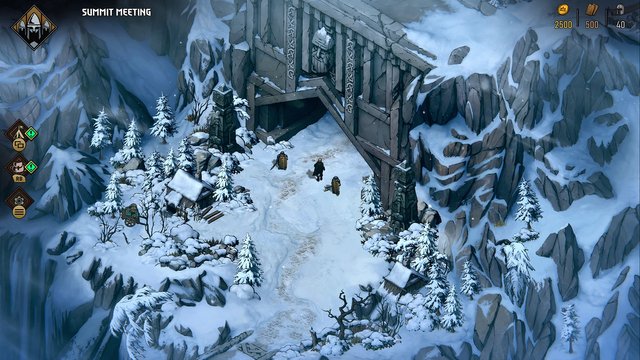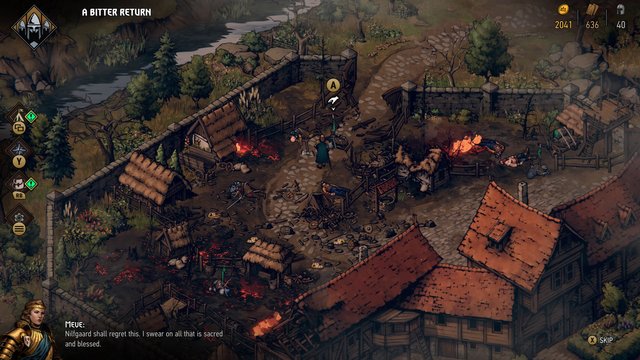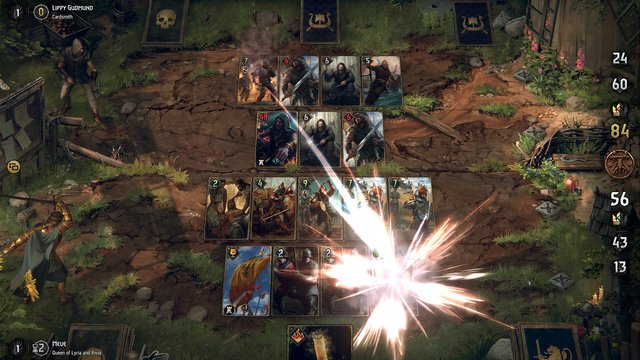Thronebreaker: The Witcher Tales Review
Gwent was a surprise hit from The Witcher 3. So much so that CD Projekt Red turned into a standalone game, and now, a standalone adventure. This is no throwaway cash grab - make no mistake about it, Thronebreaker is a full-fledged story in the universe of The Witcher.
And what a story it is! Thronebreaker's writing is on par with the very best of the Witcher series. The general themes and moods will be very familiar to everyone who has played The Witcher 3. While it features many of the strengths and quirks we've become used to from the series, the narrative here feels less formulaic than The Witcher 3: Wild Hunt's main story. Choice and consequences are suitably grim, though limited, just like The Witcher 3. The Witcher 2 still marks the high point of the franchise when it comes to choices and consequences. I feel this was a missed opportunity for CD Projekt Red to reincorporate more choices, perhaps even skill checks.

Queen Meve, the protagonist, is a surprisingly strong character for a RPG-esque game. There's definitely much more of a personality than Geralt, which does make certain choices you make seem inconsistent. Still, it's an interesting trade-off. Some of Thronebreaker's best moments are its secondary characters and Meve's interactions with them. Your choices have consequences, so there's definitely more of a leadership roleplay here than with Geralt.
With limited animations, most of the story is told through voice acting, which is excellent throughout, including the side characters. There's the signature diversity of accents, which helps build the world and makes it feel a lot larger than it is. Something to note for fantasy games using mostly American accents. While the music of Thronebreaker is really well done, the general visual style is a bit formulaic.

The game is structured much like any epic RPG, with exploration being a big part of it. There's tons of detail to investigate and learn about, and even a basic looting/resource gathering element. There's side quests too, most of which are well done, with little filler content in the densely-packed isometric worlds. You move between different regions of the world, which are distinct hub worlds. In a way, it offers a greater sense of scale than a single open world. Each of these regions are suitably distinct - what unites them is the overhanging grimness that defines the series.
Thus far, Thronebreaker is like any isometric RPG. There's narrative, there's dialogue choices and consequences, there's exploration, etc. Where Thronebreaker differs is combat. All of Thronebreaker's combat is resolved using Gwent. Of course, the Gwent here is expanded upon the minigame from The Witcher 3. It sounds like a weird idea to build a full-fledged RPG around a card game, but... It works! The main innovation here is that rules for each game keeps changing, and is brilliantly tied into the context and story. This keeps the game flowing with remarkable pacing. Very rarely did I feel the Gwent games were intrusive or out of place, it all just works surprisingly well. There's definitely some balance issues, though, which aren't unexpected for a game trying to combine a narrative RPG with a larger audience with a card game.

Thronebreaker: The Witcher Tales is an essential play for fans of The Witcher series. It's a gold mine of Witcher lore, visiting places you'd never expected to see in the mainline Geralt series. Even if you are not into card games (I'm not), it's definitely worth a try. I mean, who doesn't like Gwent? OK, maybe you are one of those weirdos, but if you are, you can simply skip the card sequences and enjoy the narrative RPG experience. There's a lot more to Thronebreaker than meets the eye.